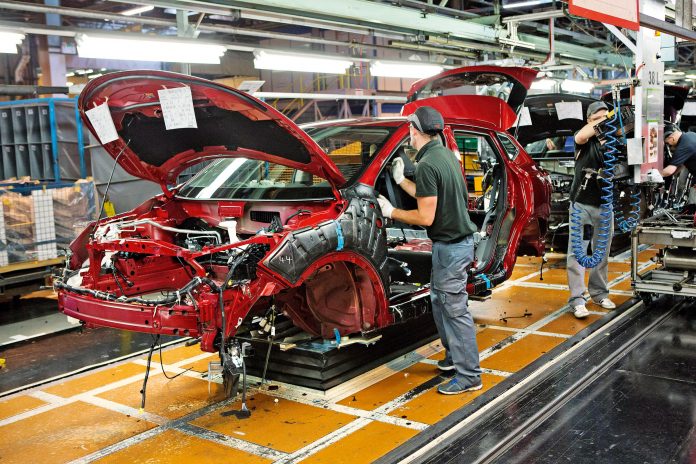Europe’s auto manufacturers and suppliers came together in Brussels last week to issue a stark warning on the potentially far-reaching impacts of a no-deal scenario on their sector, which would threaten their very business model.
Automobile production plants – be they in the EU27 or the UK – receive and fit millions of parts into vehicles every day. All manufacturers rely on ‘just-in-time’ and ‘just-in-sequence’ delivery and production, without any delays or obstacles. These parts are in constant transit in trucks, arriving as and when they are needed.
Every day 1,100 EU trucks cross the Channel to deliver to car and engine plants in the United Kingdom alone, for example. After Brexit, even short hold-ups at customs will cause massive logistical problems, disrupting the production process and generating significant costs.
“Our members are already making contingency plans and are looking for warehouse spaces to stockpile parts,” stated Erik Jonnaert, Secretary General of the European Automobile Manufacturers’ Association (ACEA), which represents the 15 major Europe-based car, van, truck and bus manufacturers. “However, the space required to stockpile for more than a short time would be absolutely huge – and expensive.”
“Some of our members are also planning a temporary post-Brexit production shutdown. But the harsh fact is that no amount of contingency planning can realistically cover all the gaps left by the UK’s withdrawal from the EU on WTO terms.”
Under WTO rules, a 10% tariff would be applied to all cars traded between the EU and the UK. Jonnaert: “We cannot forget that profit margins in our industry are significantly lower than 10%. At the end of the day, these extra costs will either be passed on to the consumer or will have to be absorbed by the manufacturers.”
“The clock is ticking, but it is not yet too late. That is why we are urging the negotiating teams on both sides to redouble their efforts to successfully conclude a withdrawal deal,” Jonnaert underlined.
Sigrid de Vries, Secretary General, European Association of Automotive Suppliers (CLEPA): “Everything possible must be done to secure a future exchange of goods, services and people that is frictionless. Automotive components often cross borders several times before the final product reaches the customer, and that includes Channel crossings. Any change in the level of integration of the value chain will have an adverse effect on the competitiveness of individual companies and the sector as a whole.”
“Smaller companies in particular, that constitute important building blocks of the supply chain, do not have the internal systems, IT platforms or staff in place to deal with customs declarations, tariff classification, customs valuation, or calculations based on content origin. SMEs will be forced to deal with at least some of these issues if they want to continue to trade and serve their customers, facing additional financial and logistical risks.”
De Vries: “CLEPA recently surveyed its membership and the most important feedback to policy makers was: remove uncertainty. It remains crucially important to provide clarity on the future relation with the UK as quickly as possible, starting with a withdrawal agreement so that a cliff-edge scenario can be avoided.”





